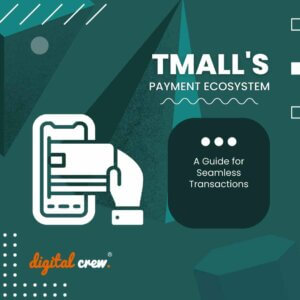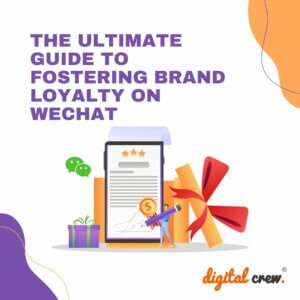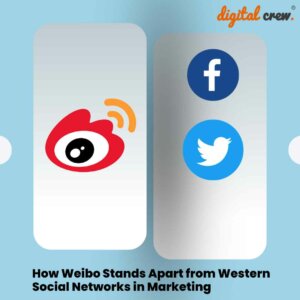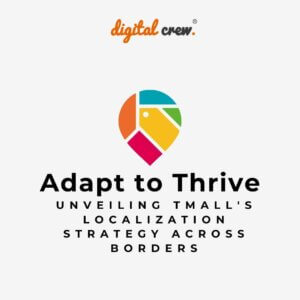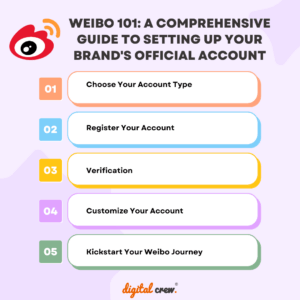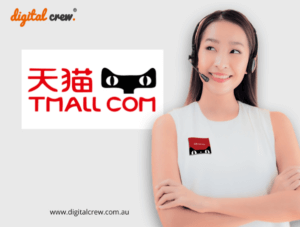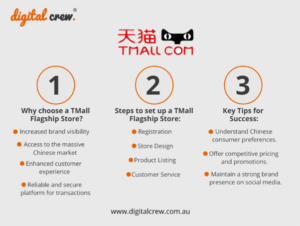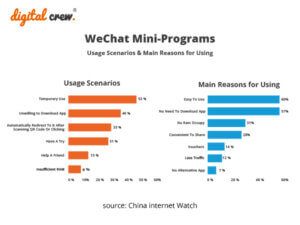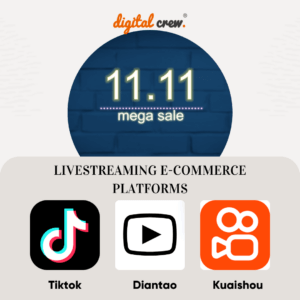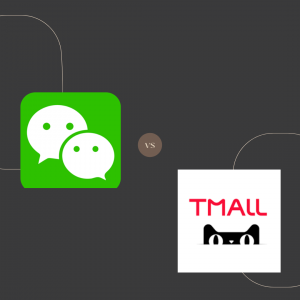Demand for branded goods from the west is high in China. If you are a brand owner or distributor looking to tap into the Chinese market, then Tmall provides an ideal online platform for product sales and marketing.
What is Tmall?
Tmall is a premium online B2C shopping mall owned by Alibaba – China’s biggest e-commerce group. It is China’s most dominant B2C platform, with a 57% market share in the region ahead of JD.com and Suning.com, according to data from Statista.
Tmall’s focus is on quality branded products – including Calvin Klein, Zara, Apple, Nike, Levis, Estee Lauder and even Costco wholesale. Demand is high for clothing and accessories, household goods, luxury cars, wine, western foods, and maternity products.
Tmall’s benefits and criteria
Apart from being China’s biggest platform of its type, there are particular benefits, such as:
- Tmall utilises the familiar Alipay system for payments. This means shoppers do not need a credit card or knowledge of English to pay for goods.
- It is very selective – only verified, genuine brands are permitted.
- The platform comes with excellent analytical tools and sales reports.
- With China having around 600 million internet users, it gives you the potential to tap into a huge market!
To operate a Tmall store, you need to be a brand owner or authorised distributor, and have a corporate identity outside mainland China.
Getting set up on Tmall
To start, you will need to establish a wholly foreign-owned enterprise (WFOE) – a Chinese limited liability company owned entirely by foreign investors without the requirement for a local partner.
The WFOE process is quite involved and can take up several months to complete. It includes:
- Reserving a company name with the Administration of Industry and Commerce (AIC).
- Project proposal and feasibility study.
- Obtaining a business licence from the relevant AIC.
- Registration with relevant tax authorities, local foreign exchange administration, finance authorities, and Bureau of Statistics.
- Obtaining import-export licences.
- Opening company bank accounts with a specified minimum amount of capital.
Once you have established a WFOE, the next step is to apply for a store on Tmall. Steps for setting up your store include:
- Submitting product information for approval.
- Registering with Alipay.
- Signing Agreements.
- Paying fees – this will include a deposit (may be up to $25K), annual fee ($5K or $10K) and any other costs and charges. 5% commission will also be charged on sales.
- Opening and building your store. This includes putting products into categories, setting pricing models, establishing a customer service team, and filling the store page with your products.
Marketing in Tmall
Alibaba’s ecosystem provides options for a variety of digital marketing activities. Paid activities include flagship store banners, CPM (cost-per-thousand) banner display ads, affiliate marketing, email or SMS marketing, and Tmall’s own Pinterest-style platforms. Indirectly-paid options may include Tmall SEO and coupons. There may also be free deals negotiated directly with Tmall available.
If you fit the criteria for Tmall, it could provide your business with a golden opportunity! If you’d like help with building your Tmall store and tailoring your marketing activities for Tmall consumers, Digital Crew’s China Online Marketing division can assist. The team has native language skills, and years of experience in operating in the Chinese marketplace.














